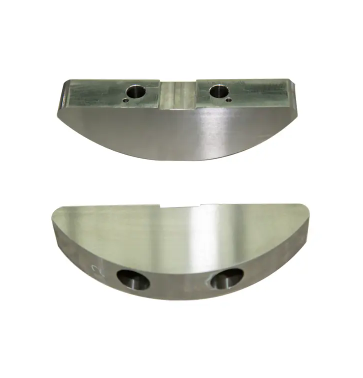Views: 0 Author: Site Editor Publish Time: 2025-01-13 Origin: Site









In the competitive landscape of metal fabrication, ensuring high-quality production is paramount for any Alloy Steel Casting Foundry. The intricate processes involved in casting alloy steel components demand meticulous attention to detail, advanced technology, and stringent quality control measures. This article delves into the essential practices and methodologies that enable foundries to produce superior alloy steel castings consistently.
The foundation of high-quality alloy steel castings lies in the careful selection of raw materials. Foundries source alloys with precise chemical compositions to meet specific mechanical properties and performance criteria. By utilizing spectrometers and other analytical instruments, foundries ensure that the elemental composition of the steel meets the required standards. This precision minimizes defects and enhances the overall integrity of the final product.
Implementing modern casting methodologies is crucial for producing high-quality alloy steel components. Techniques such as investment casting, sand casting, and die casting are selected based on the complexity and requirements of the part. Automation and computerized control systems play a significant role in maintaining consistent casting conditions, reducing human error, and improving efficiency.
Investment casting, also known as lost-wax casting, is ideal for producing intricate shapes with tight tolerances. The process involves creating a wax model of the desired part, which is then encased in a ceramic shell. After the wax is melted away, molten alloy steel is poured into the cavity. This technique offers superior surface finish and dimensional accuracy, essential for high-performance applications.
Sand casting is a versatile method suitable for large components and small production runs. Foundries utilize high-quality sand molds to shape the molten alloy steel. Recent advancements in sand casting include 3D-printed sand molds, which enhance the precision and reduce lead times. Control over sand quality and mold preparation directly impacts the surface finish and dimensional accuracy of the castings.
Quality control is integral at every production stage in an Alloy Steel Casting Foundry. Non-destructive testing (NDT) methods such as ultrasonic testing, radiography, and magnetic particle inspection are employed to detect internal and surface defects. Statistical process control (SPC) techniques help monitor production variables, ensuring they remain within specified limits.
Heat treatment is essential to achieve the desired mechanical properties in alloy steel castings. Processes like annealing, quenching, and tempering alter the microstructure of the steel, enhancing properties such as strength, hardness, and ductility. Precise control over heating and cooling rates is critical, necessitating advanced furnaces and control systems.
Post-casting operations like machining and surface finishing are vital for meeting exact specifications. CNC machines enable high-precision machining of complex geometries. Surface treatments such as polishing, plating, or coating enhance the corrosion resistance and aesthetic appeal of the castings.
A skilled workforce is indispensable for maintaining high-quality production. Foundries invest in continuous training programs to keep technicians updated on the latest technologies and best practices. Knowledge in metallurgy, mold design, and quality assurance enables personnel to make informed decisions that enhance production outcomes.
Compliance with environmental regulations and safety standards is crucial. Implementing eco-friendly practices such as recycling scrap materials and reducing emissions contributes to sustainable operations. Safety protocols protect workers from occupational hazards, ensuring a productive work environment.
Foundries committed to excellence embrace continuous improvement philosophies like Lean Manufacturing and Six Sigma. These methodologies focus on eliminating waste, reducing variability, and enhancing efficiency. Investments in research and development foster innovation in materials and processes, keeping the foundry competitive.
Effective supply chain management ensures the timely availability of high-quality materials and components. Establishing strong relationships with suppliers and utilizing just-in-time inventory systems reduce delays and quality issues. Transparency and communication throughout the supply chain contribute to smoother operations.

Collaborating closely with customers helps foundries understand specific requirements and expectations. Early involvement in the design process allows for optimization of castability and cost-effectiveness. Open communication channels facilitate feedback and continuous improvement.
Examining real-world applications underscores the importance of quality in alloy steel casting. For instance, in the aerospace industry, components must withstand extreme conditions. Foundries supplying to this sector adhere to stringent standards and certifications, demonstrating their capability to deliver excellence.
In the automotive sector, alloy steel castings are used for critical components like engine parts and suspension systems. Foundries focus on lightweighting and durability, contributing to fuel efficiency and safety. Advanced simulation tools aid in designing components that meet rigorous performance criteria.
Alloy steel castings are essential in the energy industry, particularly in wind turbines and oil and gas equipment. These applications require materials that can endure harsh environments and stresses. Foundries prioritize quality to ensure reliability and longevity of the components used in these critical infrastructures.
The integration of Industry 4.0 technologies revolutionizes foundry operations. Automation, data analytics, and the Internet of Things (IoT) enable real-time monitoring and control of production processes. Predictive maintenance reduces downtime, and digital twins simulate casting processes to optimize parameters before actual production.

Adherence to international standards like ISO 9001 for quality management and ISO 14001 for environmental management showcases a foundry's commitment to excellence. Certifications from recognized bodies enhance credibility and open doors to global markets.
Foundries face challenges such as fluctuating raw material costs, skilled labor shortages, and technological gaps. Addressing these issues involves strategic planning, investment in workforce development, and embracing innovation. Collaborative partnerships with educational institutions can help cultivate the next generation of skilled workers.
The future of alloy steel casting lies in further automation, sustainable practices, and customization. Additive manufacturing and 3D printing technologies are emerging as complementary processes for prototyping and low-volume production. Foundries that adapt to these trends position themselves as leaders in the industry.
Ensuring high-quality production in an Alloy Steel Casting Foundry is a multifaceted endeavor. It encompasses advanced material selection, state-of-the-art casting techniques, rigorous quality control, and continuous innovation. By prioritizing these areas, foundries not only meet but exceed industry standards, delivering products that drive progress across various sectors. Commitment to excellence, sustainability, and customer collaboration positions foundries at the forefront of manufacturing, ready to meet the challenges of today and the innovations of tomorrow.
